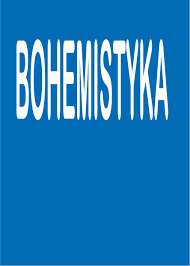»Vojna není kojná«, czyli koszarowy humor w warunkach totalitaryzmu
»Vojna není kojná«, or barracks humor in the conditions of totalitarianism
Author(s): Grażyna BalowskaSubject(s): Studies of Literature
Published by: Uniwersytet Adama Mickiewicza
Keywords: humor;language of totalitarian propaganda;obecná čeština;vulgarism;invective
Summary/Abstract: The article presents linguistic methods of achieving a comic effect in the hu- morous novel Černí baroni by M. Švandrlík. These include inter alia: combining elements from various varieties of the Czech language (spisovná čeština, obecná čeština, dialect) or Czech and Slovak language, introducing vulgarisms, skatological vocabulary and invectives into the language of totalitarian propaganda, contrast of form and content and syntactic parallelism. The important social functions of laughter are emphasized as a reaction to humor, especially during a difficult time of social life, which was the communist period, e.g. therapeutic, integrative and separating.
Journal: Bohemistyka
- Issue Year: XX/2020
- Issue No: 4
- Page Range: 551-568
- Page Count: 18
- Language: Polish

